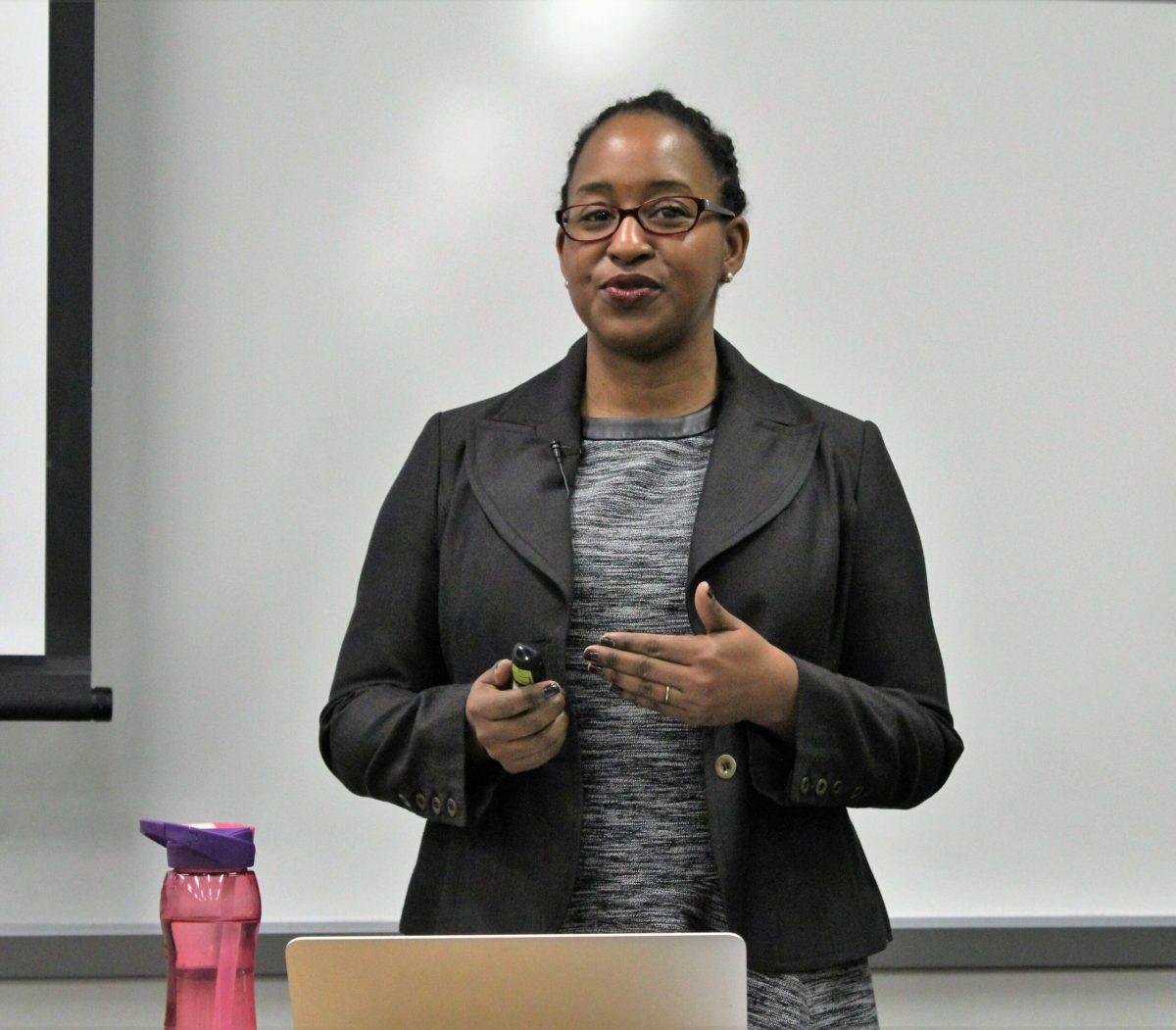The Department of Philosophy and Religion Studies held its first Theorizing at Rowan lecture of the semester with special guest scholar Nyasha Junior delivering a presentation titled “Beyoncé, Black Women and the Bible.”
The presentation held on Thursday, Feb. 4, was co-sponsored by the Africana Studies program and the Women’s and Gender Studies program. The purpose of the lectures is to provide opportunities for Rowan students to have access to other scholars from outside the university.
“Other goals are to promote scholarly exchange between the members of our department, other departments of the university and with scholars throughout the region,” said Theorizing at Rowan Coordinator Edward Kazarian.
Junior, an assistant professor of Hebrew Bible in Temple University’s Department of Religion, spoke about womanism, intersectionality and biblical interpretation.
The presentation was designed to be a glimpse of her book, “Womanist Biblical Interpretation,” which is an in depth look at the history of feminism and womanism. The difference between the two topics is that womanism is a social theory that deals with racial and gender oppression of black women, while feminism is advocating for women’s rights in politics, social situations and economic standing— especially in relation to men.
Junior said that although there’s no Beyoncé in the book, she wanted something contemporary to help generate a conversation about women’s issues. Beyoncé was used to introduce the topic of how women of color are usually questioned about being feminists.
“Black women are complex,” Junior said. “And I think that people who unfortunately focus on stereotypes don’t appreciate the complexity of black women’s experiences.”
Another focus of the lecture was the Old Testament, specifically on the biblical character Hagar and the interpretation of her throughout history. She was an Egyptian handmaid who according to the Bible, was given to another character named Abraham by his wife Sarah, to be used as a surrogate mother. Research on this interpretation is also part of Junior’s current project.
Throughout the 50-minute presentation to a room of 30 to 40 students and faculty, Junior also brought up labels and stereotypes, emphasizing how crucial it is to find your own identity.
“I think it’s important for students to see that you have to create your own agenda as a scholar,” Junior said. “Learning is a lifelong process and education gives you the tools and the foundation, but you keep learning as you go.”
Junior believes that having scholars engage with students through these presentations signifies a huge stepping-stone into finding their own identity and learning through more than one medium.
“I think it’s wonderful that the department has this opportunity,” Junior said. “I know for me as a student, it was important for me to see people from outside of my own university and to talk about how they arrived to where they are.”
Cierra Lewis, a junior journalism major who attended the talk, felt that it encouraged her to continue educating herself on womanism, African American history and biblical studies.
“I kind of identify myself as a black [feminist], so I wanted to come out and meet someone like me and learn more information,” Lewis said.
The discussion on labels resonated with Lewis because she believes that people use labels to identify those around them instead of getting to know them as people. She went on to say that when people use labels, they don’t really get to know you, they just know the label and what it entails.
“If you’re passionate about a cause, then it’s not really about a label, it’s about you and what you personally believe,” Lewis said.
For comments/questions about this story, email [email protected] or tweet @thewhitfeatures.

























































































































































!["Working with [Dr. Lynch] is always a learning experience for me. She is a treasure,” said Thomas. - Staff Writer / Kacie Scibilia](https://thewhitonline.com/wp-content/uploads/2025/04/choir-1-1200x694.jpg)









































